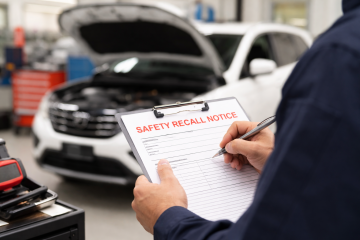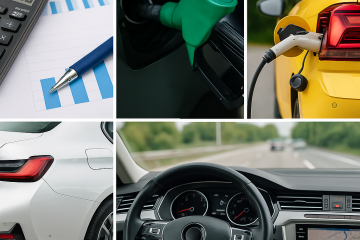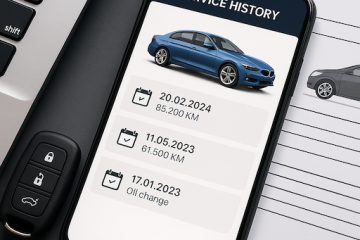Market Insight: Consistency for the win

One Auto API CEO Mark Fretwell considers the impact of Labour’s election victory on the UK automotive sector and looks at how dealers can find a winning formula under a new government…
Following Labour’s victory in the General Election, does the UK automotive retail sector stand on the brink of significant transformation?
The new government’s policies, as outlined in their 2024 manifesto, should be a reliable guide about what we can expect – and they indicate some changes that could start to reshape the used car market.
Policy reversal
A cornerstone of Labour’s automotive agenda is the accelerated transition to electric vehicles (EVs) with a headline commitment to restore the 2030 ICE phase-out for cars – reversing the decision of former prime minister Rishi Sunak to delay the ban on the sale of new petrol and diesel cars and vans in the UK to 2035.
The explanation in Labour’s manifesto claims this move will provide ‘certainty to manufacturers’. However, igniting a widespread transition to EVs among used car dealers and buyers who have lived through inconsistent policy decisions presents notable challenges.
The back-and-forth decision making around the official ICE phase out date has fuelled uncertainty among motorists about how quickly to embrace EVs.
We have seen how inconsistent messaging has chipped away at consumer confidence and caused potential buyers to delay their switch to electric as they mirror the lack of conviction coming from policymakers.
Interestingly, while there is no mention of any new financial support at this stage, the Labour manifesto does contain a pledge to “support the transition to electric vehicles by accelerating the roll out of charge points” – so a recognition that words and actions need to align to build momentum and confidence.
And it’s not just consumers that need rock-solid policy signals.
For investors, the lack of consistency has led to a cautious approach to directing significant funds into EV-related projects and technology in this country.
The Labour government’s firm commitment to the 2030 deadline could well be a step towards providing some much-needed stability in this regard but building a strong market for used electric vehicles will require sustained efforts and clear, unwavering support for the transition across the board – and nothing would speak louder than financial assistance.
Steering towards success
So what role can car dealers play in driving things forward?
Firstly, as we have been consistent in saying throughout a number of our monthly updates, a crucial piece of the puzzle that can make a real difference is education. This is an area where forward-thinking dealerships can step in and become champions for EV adoption.
Developing initiatives to inform customers about the benefits and practicalities of EV ownership can help demystify these vehicles and broaden their appeal.
Providing driving experiences, using the latest data to create informative content, and ensuring the sales team is knowledgeable and passionate about the benefits of EV technology can enhance the customer experience and build long-term loyalty.
Clear, honest communication is one of the most powerful ways to build the trust needed to help alleviate consumer reluctance stemming from past policy inconsistencies and generate enthusiasm around making the switch to an EV.
Interestingly, this drive for transparency is reflected in another Labour manifesto pledge to introduce a government-backed battery health check – albeit a pledge that is somewhat lacking in details.
This is important as, unlike traditional vehicles, where engine wear can be assessed relatively easily, the health of an EV’s battery is less straightforward to evaluate for the average buyer.
This uncertainty can make potential purchasers hesitant, fearing that they might inherit a vehicle whose battery capacity has significantly degraded, leading to reduced range and efficiency with the potential for a large repair bill.
Our partnership with ClearWatt is designed to give the industry tools to debunk battery health myths but, if the new government wants to go further in igniting demand for electric vehicles, we need to see the sort of financial incentives that have driven demand in salary sacrifice schemes becoming more widely available – because nothing speaks louder than money.
Affordability and accessibility
It can’t be underestimated how critical the used EV market is to the overall success of the 2030 phase-out ambition.
One of the other barriers to widespread uptake of EVs among retail buyers has been the higher upfront cost compared to traditional ICE equivalents. While the cost of new EVs is gradually decreasing, monthly payments still remain out of reach for many potential buyers who do not have access to a salary sacrifice scheme.
With the right support a thriving used EV market will help to drive demand for new EVs through stronger residual values and lower monthly payments, whilst also helping to build familiarity with EV technology and ownership with the next generation of EV buyers.
In our view, financial incentives for used car buyers will be crucial for achieving widespread adoption and meeting the 2030 target.
Generating long-term revenue and profits
And as we move into what many automotive retailers hope will be a sustained period of market growth, applying consistency to business processes will be just as important.
Consistent business processes streamline operations, reducing the time and resources required to complete tasks. When employees follow established procedures, they can perform their duties more efficiently, minimising errors and rework.
This efficiency not only boosts productivity but also frees up resources that can be redirected towards growth initiatives, ultimately driving revenue and profitability.
For a business to grow, its processes must also be scalable.
Technology can play a key role in supporting consistency in operations through automation and freeing people from mechanical processes. This allows them to focus on delivering exceptional customer experiences – where they add most value to your business.
Consistent processes need accurate, high quality data to ensure repeatable outcomes and sustained improvements in performance. Successful data-driven businesses use data to identify trends, benchmark their performance against their competition and make tactical adjustments that drive their performance and profitability.
A word of caution though.
While consistency is crucial, it should not stifle innovation.
Standardised processes need to be challenged and new ideas tested frequently in order to drive continuous improvement. Senior managers need to support this by encouraging ideas and helping their teams establish new best practices aided by technology.
The balance between consistency and innovation can be difficult to achieve but fostering a culture of continuous improvement is a powerful force for growth and long-term success.
Challenge and opportunity
As the UK automotive retail sector looks ahead to life under the new Labour government, we can be sure that the road ahead will be paved with both challenges and opportunities.
For dealers, an accelerated transition to electric vehicles is not just about adapting to new technologies but also about becoming educators and trusted advocates for EV adoption.
By fostering transparency, enhancing customer education, and maintaining consistent business processes, dealerships can build trust and drive the market forward.
The journey towards a greener future is underway, and with consistent and concerted efforts, the UK automotive sector can steer towards long-term success and profitability.
Here to help – let’s talk.
If you have any questions about how you can use data to position your business for future success, we are here for you. Click here to schedule a free 30-minute consultation – we will use the time to understand your business, project and goals to see how we can add value.


